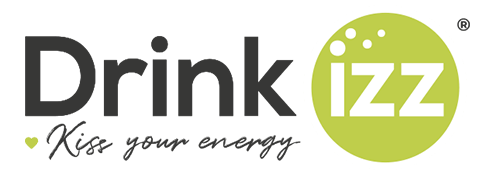
Hello friends,
I invite you to join me in this blog post for an in-depth look at Drinkizz’s digitalization journey. Drinkizz is a wonderful startup that launched the O.N.E drink to keep your energy sustainable, durable, and to keep you fresh and engaged in your daily tasks. Don’t hesitate to taste our O.N.E products, and you’ll find they stand out in a world filled with chemical foods and drinks.
I have worked at Drinkizz on digital projects since 2019. Over these years, I’ve witnessed and contributed to the transformation of Drinkizz’s digital infrastructure. If you’re interested in implementing no-code and AI at your company without spending years on study and turning around, feel free to contact me.
In this blog, we will discuss our frustrations in the digitalization field due to some bad decisions and choices. This phase marked a turning point in our digitalization journey. As we look back, it is essential to share our experiences and insights to help other businesses avoid the pitfalls we encountered.
Our Initial Situation
When we started, our data management was primarily handled using spreadsheets and Google Drive. At first glance, these tools appeared to be the perfect solution. They were easy to use, allowed for some level of automation with macros and data management, and were readily available. However, as our operations grew, the limitations of these tools became glaringly apparent, and they could not adapt to our internal data models and processes.
The Challenges We Faced
Disorganized Data and Poor Traceability:
Our reliance on basic spreadsheets and Google Drive databases led to disorganized data. tracking everything from sourcing and manufacturing to distribution for both our B2C and B2B clients was a constant challenge.
Management of data was often frustrated, and finding specific information quickly became a challenge, leading to lost productivity and control over our data management.
Data Typing Errors and Missing Relationships:
Spreadsheets, while flexible, are prone to human error. Frequent data typing errors led to inaccuracies that affected our decision-making processes. Additionally, Google Drive and Spreadsheets lacked relational data models, meaning connections between data points were often missing, further complicating analysis and decision-making.
Limited Collaborative Work:
While Spreadsheets offered some level of collaboration, it was not enough for our growing team. Real-time collaboration was often hampered by version control problems, leading to inefficiencies and frustration among team members.
Access Security Issues:
Managing access security was another significant concern. With sensitive information stored in Google Drive, ensuring that only authorized personnel had access was a constant worry. The risk of unauthorized access and potential data breaches was always looming.
Transaction Difficulties and Poor UI:
Handling transactions through spreadsheets was far from ideal. The user interface was not designed for the complexity of our business operations, making it difficult to manage transactions effectively. This led to delays and errors, further impacting our business processes.
Non-Compliance with Business Processes:
Business processes and rules were not followed well by the team. Sometimes, the limitations of spreadsheets prevented the team from adhering to established processes, leading to data confusion and inaccuracies.
Lack of Soft Skills and Experience:
At that time, we also lacked the necessary soft skills and experience in data management. Skills such as effective communication, data analysis, and strategic planning were not adequately developed within our team, further hindering our ability to manage data efficiently.
The Importance of Data Quality from the Early Stages
Our experience during the Frustration Phase underscored the critical importance of prioritizing data quality from the early stages of a business. Choosing the right methodologies, systems, and strategies is essential to avoid the mistakes we encountered. Robust data management systems not only ensure accuracy and efficiency but also provide a solid foundation for scaling your operations.
Investing in a comprehensive data management solution early on can save businesses from significant headaches down the line. It enhances traceability, ensures data integrity, and supports seamless collaboration, all of which are crucial for sustainable growth.
So, What Next?
In our next blog post, we will explore the Hesitation Phase we encountered in 2020. We’ll discuss the doubts and uncertainties we faced while considering a major overhaul of our data management systems, and how we ultimately decided on the best path forward. Stay tuned for more insights from the digitalization journey of Drinkizz!
By learning from our journey through the Frustration Phase, you can take proactive steps to ensure your data management systems are equipped to handle the demands of your growing business. Don’t let data management frustrations slow you down—invest in quality and simple systems and methodologies from the start to pave the way for future success.
Support us by subscribing to our YouTube channel and LinkedIn to stay updated with our daily posts.





